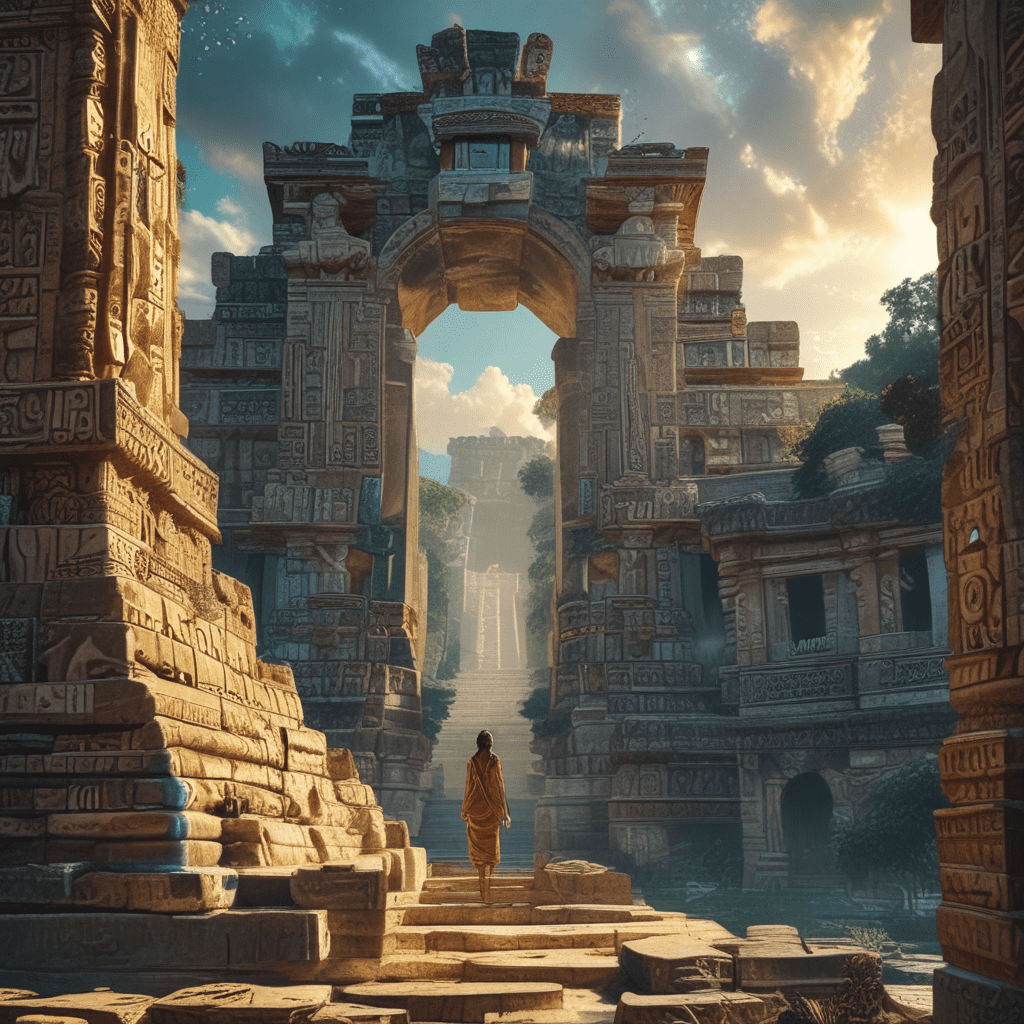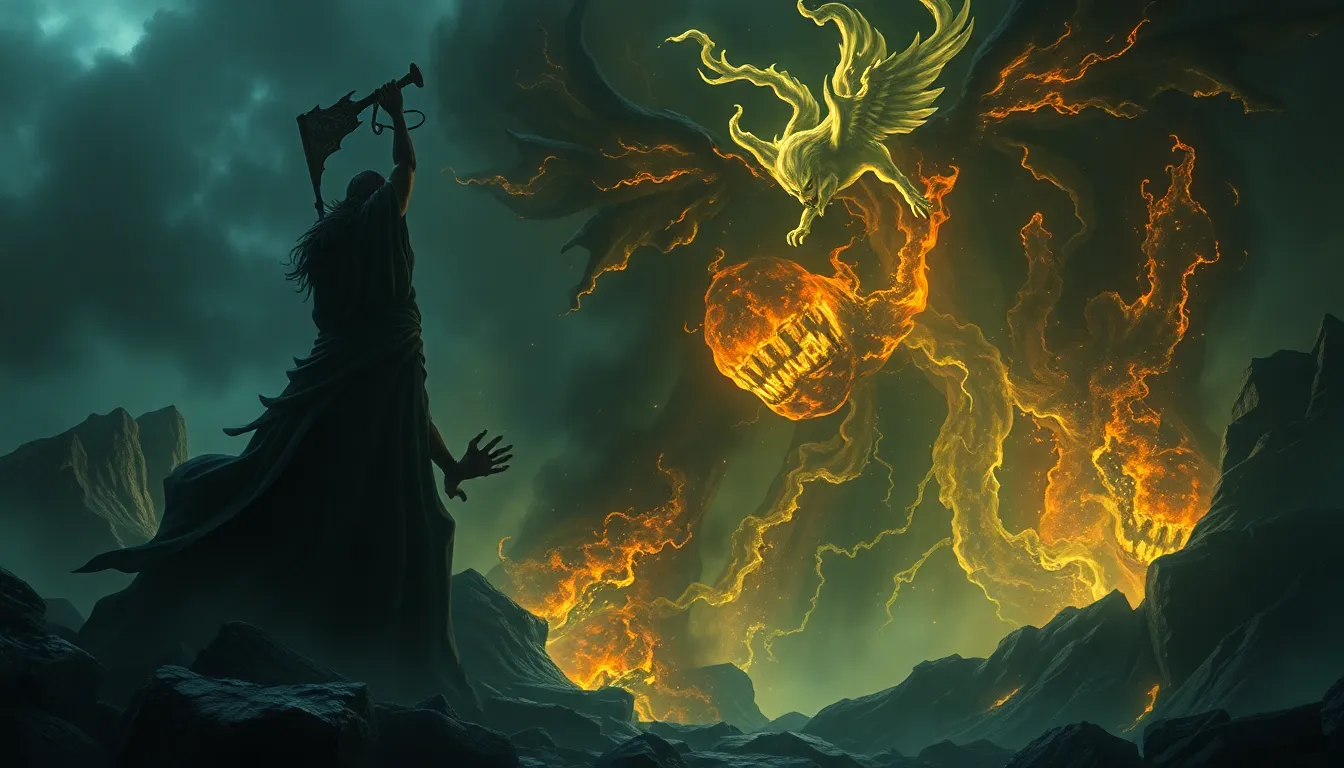The Wrath of the Gods: Legendary Myths of Punishment Revealed
I. Introduction to Divine Retribution
Divine retribution refers to the concept of punishment meted out by deities as a response to human actions, particularly those deemed immoral or sinful. In mythology, these narratives serve as cautionary tales, illustrating the consequences of hubris, betrayal, and disobedience. Across various cultures, myths of punishment are significant as they reflect societal values and moral codes, often reinforcing the notion that actions have consequences.
This article aims to explore the theme of divine retribution across different mythologies, examining how ancient cultures interpreted the wrath of their gods and the implications of these narratives on human behavior and societal norms.
II. The Concept of Wrath in Ancient Civilizations
Anger and wrath are central themes in many mythologies, often personified in the gods and their interactions with humanity. The role of anger in the pantheon varies significantly among cultures, but it generally serves as a catalyst for divine punishment.
- The role of anger: In many traditions, gods express anger as a response to human misdeeds or defiance.
- Comparative analysis: While some gods are quick to anger, others may take a more measured approach, reflecting different cultural attitudes towards justice and morality.
- Psychological implications: These myths often mirror human emotions, providing insight into how societies understand and cope with anger and conflict.
III. Greek Mythology: The Fury of the Olympians
In Greek mythology, the Olympian gods exhibit profound wrath, often leading to severe punishment for mortals. One prominent example is the punishment of Prometheus.
A. Zeus and the punishment of Prometheus
Prometheus, a Titan known for his intelligence and defiance, stole fire from the gods to give to humanity. In retaliation, Zeus condemned him to eternal torment, having him chained to a rock where an eagle would eat his liver daily, only for it to regenerate each night.
B. The tale of Niobe: A mother’s pride punished
Niobe, the queen of Thebes, boasted about her children, claiming superiority over the goddess Leto, who had only two offspring, Apollo and Artemis. In response, Apollo and Artemis killed all of Niobe’s children, demonstrating the dire consequences of hubris in the face of divine power.
C. The Trojan War: Divine intervention and wrath
The Trojan War is another significant instance of divine wrath, where gods took sides, intervening in human affairs. The conflict was fueled by personal vendettas among the gods, leading to widespread destruction and suffering as a form of divine punishment for humanity’s failings.
IV. Norse Mythology: The Vengeance of the Aesir
Norse mythology presents a complex view of divine retribution, often intertwined with fate and the inevitable doom of the gods themselves.
A. Loki’s betrayal and the consequences for the gods
Loki, the trickster god, played a pivotal role in the downfall of the Aesir. His betrayal led to the death of Baldr, which incited the wrath of the gods against him, resulting in severe punishment and his eventual imprisonment.
B. Ragnarok: The ultimate judgment and destruction
Ragnarok represents the cataclysmic end of the world in Norse mythology, where the gods face their ultimate judgment. This event is marked by immense wrath and destruction as the gods confront their fates, serving as a reminder of the cyclical nature of existence and the consequences of their actions.
C. The concept of fate and punishment in Norse beliefs
In Norse culture, the concept of fate is paramount. The Norns, who weave the destinies of both gods and men, illustrate how divine punishment is often seen as a fulfillment of fate rather than mere vengeance.
V. Egyptian Mythology: The Justice of Ma’at
In ancient Egypt, the goddess Ma’at embodied truth, justice, and cosmic order. Her principles governed the universe, and her judgment was integral to the afterlife.
A. The role of Ma’at in maintaining cosmic order
Ma’at’s presence ensured that balance and order prevailed in the cosmos. Disruption of this order often resulted in divine retribution against those who acted unjustly.
B. The judgment of souls and divine accountability
The weighing of the heart ceremony was a critical aspect of the afterlife, where the deceased’s heart was weighed against Ma’at’s feather. A heart heavier than the feather indicated a life of wrongdoing, resulting in punishment.
C. The story of Osiris and the consequences of betrayal
The myth of Osiris, who was betrayed and murdered by his brother Set, highlights the themes of justice and retribution. Osiris’s resurrection by his wife, Isis, symbolizes the triumph of order over chaos, with Set ultimately facing punishment for his crimes.
VI. Hindu Mythology: The Cycle of Karma and Divine Retribution
Hindu mythology emphasizes the concept of karma, where actions in one life directly influence future existences. This belief in karma shapes the understanding of divine retribution.
A. The concept of karma and its divine implications
Karma dictates that every action has consequences, which can manifest as divine punishment or reward across lifetimes.
B. Examples of divine punishment in the epics (Ramayana and Mahabharata)
The epics illustrate numerous instances of divine retribution, such as the punishment of Ravana in the Ramayana and Duryodhana in the Mahabharata, where their actions led to their downfall.
C. The role of avatars in enacting divine justice
Avatars, such as Lord Vishnu’s incarnations, play crucial roles in restoring dharma (cosmic order) and administering divine justice, reinforcing the belief in retribution for wrongdoing.
VII. Mesopotamian Myths: The Wrath of the Gods
Mesopotamian mythology features gods who enforce order through punishment, reflecting the societal need for structure and justice.
A. The Enuma Elish and the creation of order from chaos
The Enuma Elish describes how the god Marduk defeated chaos and established order, emphasizing the theme of divine retribution against chaos and disorder.
B. The story of Gilgamesh and the consequences of arrogance
Gilgamesh’s journey highlights the consequences of hubris, as he learns that even a demigod can face divine wrath for overstepping moral boundaries.
C. The significance of divine punishment in maintaining societal order
Through these myths, Mesopotamian cultures reinforced the importance of adhering to social and moral codes, using divine punishment as a deterrent against transgression.
VIII. Indigenous Mythologies: Nature and Divine Retribution
Indigenous mythologies often depict nature as a force of divine retribution, reflecting the interconnectedness of humanity and the environment.
A. The role of nature in enforcing divine punishment
Natural disasters, animal behavior, and environmental changes are frequently interpreted as manifestations of divine wrath against human actions.
B. Examples from Native American and Aboriginal Australian myths
In many Native American and Aboriginal Australian myths, stories illustrate how disrespecting nature leads to punishment, emphasizing the need for harmony with the environment.
C. The moral lessons imparted through these stories
These narratives serve as powerful moral lessons, teaching respect for nature and the consequences of environmental degradation.
IX. The Modern Relevance of Punishment Myths
Ancient myths of punishment continue to resonate in contemporary society, influencing beliefs about justice and morality.
A. How ancient myths influence contemporary beliefs about justice
Many modern legal systems and moral frameworks can trace their roots back to these ancient narratives, demonstrating the enduring power of myth in shaping societal values.
B. The psychological impact of mythology
Mythology offers psychological insight into human behavior, providing frameworks for understanding morality, justice, and the consequences of actions. The tales of divine retribution remind individuals of the importance of ethical conduct in their lives.


